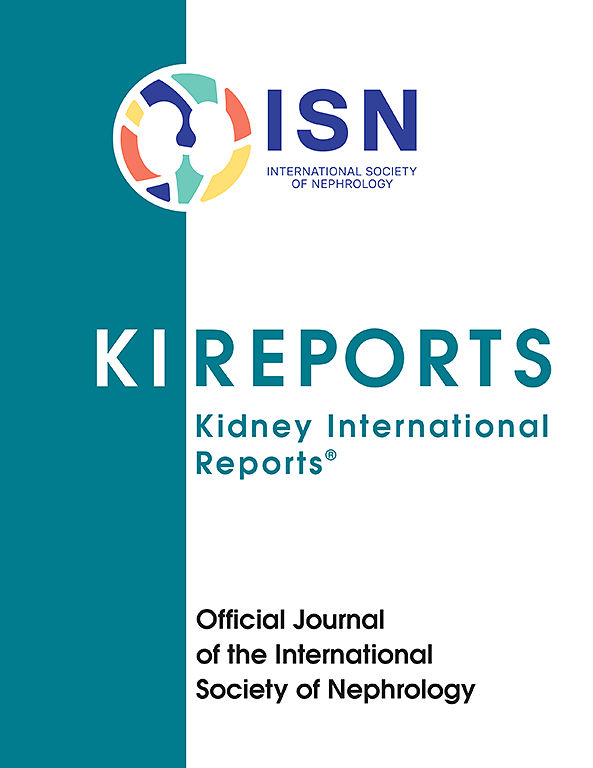COL4A5 Intronic Variants at Third to Fifth Nucleotides Cause Alport Syndrome
IF 5.7
2区 医学
Q1 UROLOGY & NEPHROLOGY
引用次数: 0
Abstract
Introduction
Alport syndrome (AS) is an inherited kidney disease caused by variants in the COL4A3, COL4A4, or COL4A5 genes, resulting in type IV collagen abnormalities. Although autosomal dominant variants in COL4A3 and COL4A4 are increasingly being diagnosed, X-linked AS (XLAS) caused by COL4A5 variants predominates. Single nucleotide substitutions in introns positioned at first and second from the last nucleotide (called a consensus sequence) of exons always cause aberrant splicing. However, whether intronic variants at the third to fifth positions from the last nucleotide of exons can cause aberrant splicing is unclear.
Methods
We identified 11 intronic variants positioned at the third, fourth, and fifth nucleotides from the exon 3′ end in COL4A5 from our AS cohort (January 2006–July 2022). We conducted in vitro splicing assays using minigenes and in silico splicing analysis using commercial splicing prediction software and evaluated mRNA sequences obtained from patients’ samples when available.
Results
All 11 patients showed aberrant splicing patterns in the minigene splicing assays. In vivo analysis of 6 patients corroborated these findings. The commercial splicing prediction software accurately predicted splicing changes in 10 variants.
Conclusions
This study shows that 11 intronic variants at the third to fifth positions in COL4A5 introns cause aberrant splicing. This finding highlights the importance of evaluating such variants for the diagnosis and prognosis of XLAS. Further investigation is warranted to confirm the pathogenicity of these variants and their effect on the prognosis of the kidney in XLAS.

求助全文
约1分钟内获得全文
求助全文
来源期刊

Kidney International Reports
Medicine-Nephrology
CiteScore
7.70
自引率
3.30%
发文量
1578
审稿时长
8 weeks
期刊介绍:
Kidney International Reports, an official journal of the International Society of Nephrology, is a peer-reviewed, open access journal devoted to the publication of leading research and developments related to kidney disease. With the primary aim of contributing to improved care of patients with kidney disease, the journal will publish original clinical and select translational articles and educational content related to the pathogenesis, evaluation and management of acute and chronic kidney disease, end stage renal disease (including transplantation), acid-base, fluid and electrolyte disturbances and hypertension. Of particular interest are submissions related to clinical trials, epidemiology, systematic reviews (including meta-analyses) and outcomes research. The journal will also provide a platform for wider dissemination of national and regional guidelines as well as consensus meeting reports.
 求助内容:
求助内容: 应助结果提醒方式:
应助结果提醒方式:


